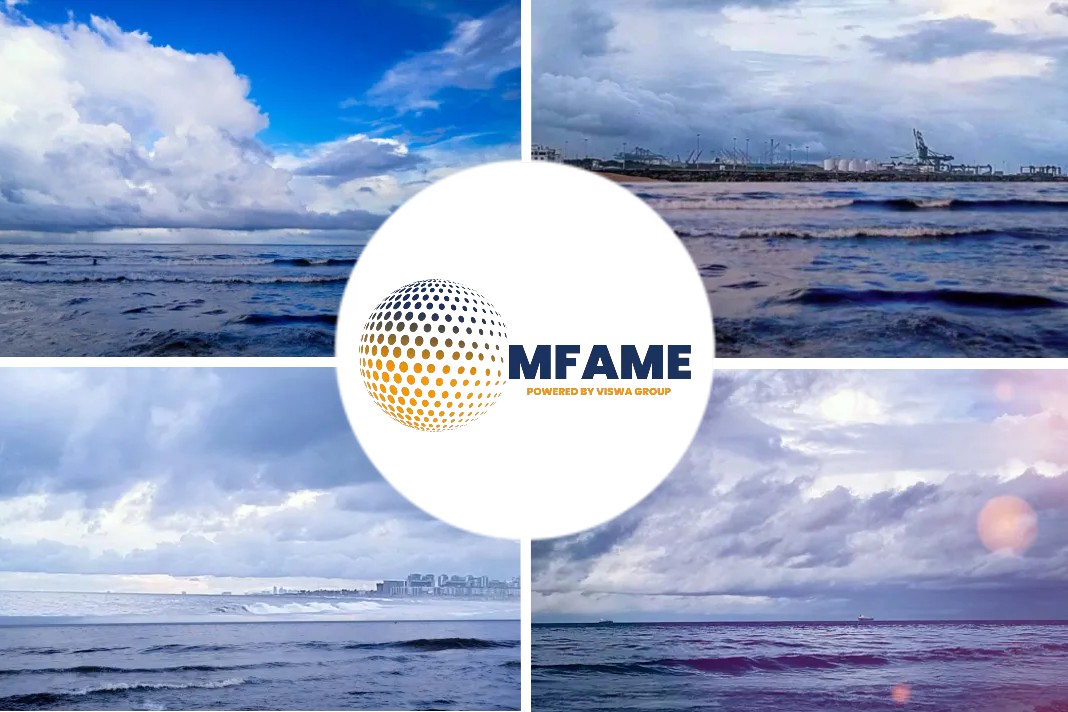The USCG issued guidance regarding the difficulties the international shipping and transportation industry is facing during the COVID-19 pandemic, reports Safety4sea.
Noting the impact of the COVID-19 the member Authorities of Indian Ocean MOU has agreed to consider the issue of extending periods of service on board ships and accept there may be a need to apply flexibility under the circumstances.
Guidance for dealing with COVID-19 impact
As a general principal requests would be considered on a case by case basis by the relevant port State. In doing so, the port State should request the operator of the ship confirm that the flag State and relevant seafarer organisations (if applicable) have been involved in the process.
When advising the port State of the need to extend periods on board the operator should provide a plan or process that covers how variations to the MLC requirements would be managed.
This plan or process may include, or consist of:
- Amendments to the relevant parts of the Declaration of Maritime Labour Compliance – Part I & II respect of section 10 of Standard A5.1.3 of the MLC that to provide specific equivalents solutions to address the 2019-nCoV virus situation.
- Letter of dispensations issued by flag States including appropriate conditions, accompanied by a plan submitted by the ship owner describing what measures being taken to comply with the conditions imposed by the flag State.
MTS Operation is crucial
The USCG, as well as Tokyo MOU, Paris MOU and Indian MOU which have previously issued related guidance, has recognized there is a need for flexibility and clarity under these special circumstances during COVID-19 and have assembled port state control guidance.
USCG highlights that , during these difficult times, it is of paramount importance that their Marine Transportation System (MTS) to continue operation, ensuring domestic supply chain remains uninterrupted.
According to USCG circular, commercial vessel compliance activities should, to the extent possible, continue so as to safeguard the MTS and prevent an undue backlog from causing future delays.
To facilitate the safe flow of commerce, the Coast Guard will liberally use remote inspection techniques to verify vessel compliance and, if needed, defer inspections. The following is the Coast Guard’s current position on commercial vessel compliance activities:
”Prior to boarding a vessel or immediately prior to conducting a pre-exam/inspection meeting, Marine Inspectors, Port State Control Officers (PSCOs), and Commercial Fishing Vessel Examiners will verify with the vessel representative that there are no ill persons onboard. Coast Guard personnel will practice the appropriate protective measures as outlined by the Centers for Disease Control and Prevention (CDC).”
Statutory or regulatory requirements
U.S. flagged vessels and OCS units due for Certificate of Inspection (COI) Renewals, Annual Inspections, Periodic Inspections, Dry Dock Exams, and Internal Structural Examinations (ISE) that are based on statutory or regulatory requirements should be addressed on a case-by-case basis by the local OCMI.
Based on the OCMI’s evaluation of the history of the vessel and in consultation with the vessel owner or operator, the OCMI may:
- Require Coast Guard attendance onboard the vessel to conduct a full or abbreviated inspection;
- Accept objective evidence such as recent classification surveys, pictures, video, vessel logs, machinery alarm reports, etc., in lieu of Coast Guard attendance onboard the vessel to credit a required inspection or exam. (A dry dock, pressure vessel, or other non-annual exam may only be credited for a maximum of one year.);
- Defer a required inspection or exam for up to 90 days; or
- Issue a CG Form CG-835V to restrict the vessel movement as a worklist item
Surveys subject to Subchapter M requirements
Recognized Organizations (ROs) and Third Party Organizations (TPOs) that are conducting surveys and audits on behalf of the Coast Guard may request extensions on a case-by-case basis on behalf of the vessel owner or operator.
This includes both internal and external surveys for those companies/vessels subject to Subchapter M requirements. Surveys and audits that require travel to or through high-risk affected areas will generally constitute sufficient reason for the Coast Guard to grant an extension.
Any extension of a statutory or regulatory required survey or audit will be documented in writing by the RO/TPO and should generally not be more than 90 days.
ROs/TPOs that seek to use remote survey in lieu of attendance on vessels that are both classed and certificated should contact the Flag State Control Division (CG-CVC-4) or the Towing Vessel National Center of Expertise (TVNCOE) to propose the methods and administrative procedures that will be used.
Extension requested for vessels subject to Subchapter M requirements should be relayed by the TPO to the OCMI. The same allowances should be considered for companies that are required to complete internal vessel and management audits as required by ISM or TSMS.
These companies should work through their RO/TPO for extension requests; however, extensions granted for this work is not required to be reported to the CG, but rather documented by company and RO/TPO.
Port State Control Exams
The Coast Guard will continue to use a risk based program to determine which vessels will be required to undergo a Port State Control Exam. The Coast Guard will not issue deficiencies or detain vessels for expired certificates, documents or mariner credentials until October 1, 2020.
Certain Certificate of Compliance (COC) exams are a statutory and regulatory requirement. Based on the OCMI’s evaluation of the history of the vessel, the OCMI may:
- Require Coast Guard attendance onboard the vessel to conduct a full or abbreviated exam;
- Accept objective evidence such as vessel status within Qualship 21, previous port state or flag state exams, recent classification surveys, pictures, video, vessel logs, machinery alarm reports, etc. in lieu of Coast Guard attendance onboard the vessel to credit a required inspection or exam; or
- Defer a required inspection or exam for up to 90 days.
Read the USCG circular here.
Did you subscribe to our daily newsletter?
It’s Free! Click here to Subscribe!
Source: Safety4sea























